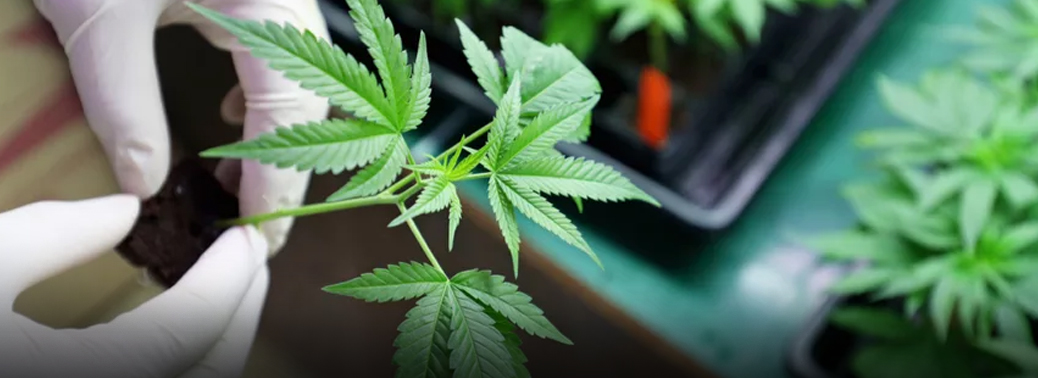CANNABIS LEGALIZING ISSUE
19, Jul 2019

Prelims level : Governance- Institutional Reforms, Policies; Social Issues- Health
Mains level : GS-II- Government policies and interventions for development in various sectors and issues arising out of their design and implementation. GS-II- Issues relating to development and management of Social Sector or Services relating to Health, Education, Human Resources.
Context:
- Litigation has claimed before the Delhi High Court in its pursuit to bring an end to various existing laws in India that prohibit and criminalise its use.
Background:
- The earliest known reports regarding the use of cannabis in India come from the Atharva-Veda, written around 2000-1400 BCE.
- Cannabis has been consumed in different ways—smoking (ganja), chewing (bhaang), drinking (tea), etc.
- Its plant has been used for manufacturing clothes, shoes, ropes and paper. In ancient India, it was used for treating or alleviating symptoms of several diseases.
Classification:
- The International Classification of Diseases and the Diagnostic and Statistical Manual of Mental Disorders designate cannabis as an addictive substance, with recognised dependence disorders.
NDPS Act:
- The Narcotic Drugs and Psychotropic Substances Act, 1985, prohibited cultivation or production of cannabis plant by anybody, while reserving these rights with central and state governments if they wish to do so, by creating rules later.
Cannabis legalization issue at global level:
- There is a global wave of legalisation of cannabis, based on its medicinal properties and commercial utilities.
- Buoyed by success in the West (Uruguay, some US states, Canada), cannabis supporters are pushing for legalisation in India.
- In the US, the use of marijuana (a more addictive derivative) for medicinal purposes is legal in a number of states, whereas its use for recreational purpose has also been legalised in some states.
- Canada has legalised its use for recreational as well as medicinal purposes.
- Europe recognises the use of marijuana for recreational purposes as a crime, but its use for medical purposes is permitted in many countries.
Medicinal Use:
- There is no good evidence that cannabis is beneficial when used in diseases such as Crohn’s disease, sleep disorder, glaucoma, etc.
- Similarly, there is no data to support its use in oncology practice outside of clinical experiments—cannabis derivatives are known to have immunosuppressive that can promote cancer.
- In summary, its medicinal benefits aren’t as strong as presented by the proponents of legalisation—safer and effective alternatives are available in the market.
Why did US and Canada legalize it?
- With an increasing number of youth (though a minority) supporting legalisation, most policymakers don’t see it a battle worth fighting, even though justified.
- In the US, public opinion was built on decades of misinformation, racial discrimination, police excesses, degree of punishment, incarceration in jail, craving for liberty, etc.
- Also, policymakers seem to be excited about another source of revenue.
Does legalisation help:
- Colorado legalised marijuana around five years ago.
- Expert committeee noted there is substantial evidence that its use may lead to cancer, cardiovascular illness, lung diseases, road accidents, impaired adolescent health, serious drug interaction and reproductive health disorders.
- It reported robust evidence that legalisation may increase unintentional use by children at home. It noted the foetus born to mothers who use marijuana may be seriously harmed.
- Post-legalisation, new types of crimes emerged, such as illegal cultivation, sale, production.
Legalization of Cannabis in Indian Context:
- India has a history of misuse of even prescription drugs that are otherwise beneficial.
- Weak opiates (derivatives of opium) are one of the easily available alternatives to cannabis for medical conditions.
- Codeine-based cough syrups are effective for controlling severe cough, but after reports of rampant misuse.
- In Indian context, when prescription drugs are grossly misused, how can we ensure disciplined used of cannabis? It is obvious that arguments of medicinal or industrial use are simply smokescreens to fool policymakers and swing public support.
Will legalisation worsen our overburdened healthcare system?
- India is struggling to control the three addictive substances of tobacco, alcohol and areca nut.
- As per the Global Adult Tobacco Survey, 270 million Indians use tobacco and it kills around 1.35 million Indians every year.
- Nearly 30% of India’s adult population is using alcohol, leading to 3.3 million deaths. Legalisation of cannabis is not only going to worsen these alarming statistics, but also serve as a gateway for one of these carcinogens.
Conclusion:
- The younger generation is living in an era of personal liberty, rising affluence, more prone to addiction and struggling with personal relationships.
- Introduction of yet another psychoactive drug will wreak havoc on a population still struggling with tobacco, alcohol and pan masala.
- It is unlikely to solve the drug menace in Punjab, Rajasthan and other states.
- Cannabis prohibition is being portrayed as paternalistic nanny-state policy by party hoppers.
- However, promotion of addiction and sufferings among millions is a heavy price to pay for protection of individual freedom of a handful.
- We cannot allow our next generation get trapped into a vortex of poor performance, indiscipline, addiction, psychosis, isolation, insecurity and bleak future.






